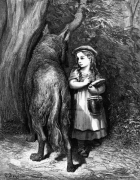Classroom Resources
The HA has spent a great deal of effort in developing resonant support for the Key Stage 2 curriculum. Most you will find here, especially the articles and reviews from Primary History. Read more
-

Constructivist chronology and Horrible Histories
ArticleClick to view -

Scene shifting: Using visuals for chronology
ArticleClick to view -

Primary History and planning for teaching the Olympics - four curricular models
ArticleClick to view -

From Champion to Hero: Engaging Pupils in a study of significant Olympians
ArticleClick to view -

Investigating the ancient Olympic games: A Case Study
ArticleClick to view -

Learning to engage with documents through role play
ArticleClick to view -

'Doing Local History' through maps and drama
ArticleClick to view -

Planning for local history
ArticleClick to view -

Local railway history: using visual resources
ArticleClick to view -

A Local History Toolkit
ArticleClick to view -

Sutton Hoo - Classroom archaeology in the digital age
ArticleClick to view -

Artefacts handling at Brunel's SS Great Britain
ArticleClick to view -

Artefacts and art facts: images of Sir Francis Drake
ArticleClick to view -

History, artefacts and storytelling in the 2011 primary curriculum
ArticleClick to view -

Extending Primary Children's thinking through artefacts
ArticleClick to view -

Doing History with Objects
ArticleClick to view -

Pride in place: What does historical geographical and social understanding look like?
ArticleClick to view -

Case Study: Prehistory in the primary curriculum: A stonehenge to remember
ArticleClick to view -

Teaching Resources from the Ephemera Society
ArticleClick to view -

Folk tales: Universal values, individual differences
ArticleClick to view

